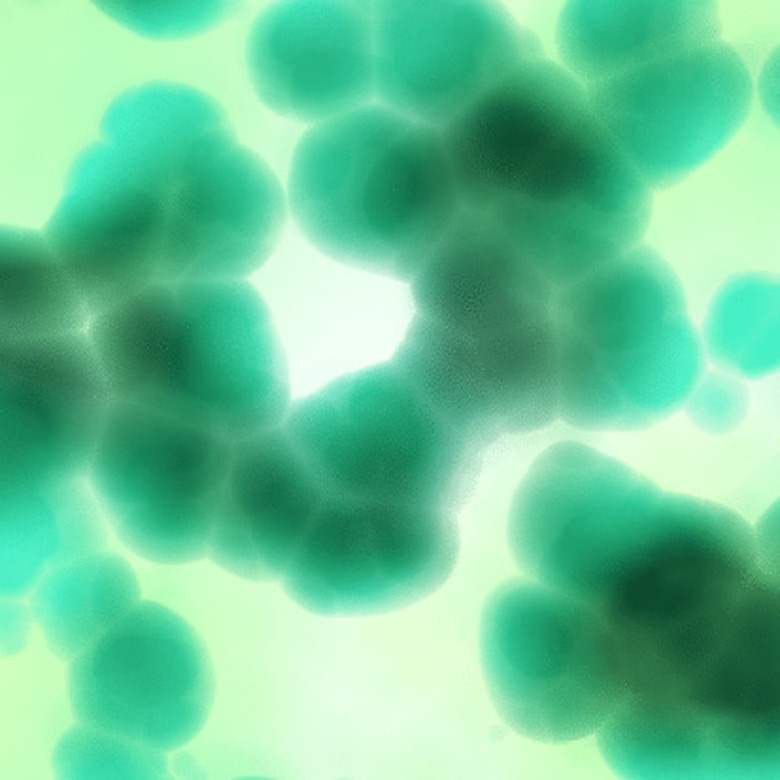Scientific Experiment Ideas For AP Biology
AP biology makes heavy use of the scientific method through experiments in an attempt to test a hypothesis and learn something about organisms. AP biology students must individually plan a biologically interesting phenomenon to be investigated, a hypothesis related to that phenomenon and an experiment to determine whether the hypothesis is valid.
Organism Growth
Organism Growth
Biologists are often interested in the growth of organisms and the factors that influence the rate at which organisms grow. An experiment investigating growth for your AP biology course should specify an organism whose growth is worthy of note, a hypothesis related to the factors of its growth and an experiment to show how the modification of these factors can influence rate of growth.
One specific idea for this type of experiment is to investigate mold. Mold is important because it affects the rate at which food spoils. Design a controlled experiment in which you can alter the environmental conditions at which the mold grows. Consider investigating the impact of light, temperature and humidity on the growth of various samples of mold.
Plants
Plants
Plants are common subjects of AP biology experiments because they are inexpensive and easy to control. Design an experiment that investigates how various factors influence the phenomena related to plants. Some ideas are investigating plant color, growth and oxygen output.
If you are interested in oxygen output, many common aquarium plants such as elodea produce easily observable levels of oxygen. You can observe oxygen output by placing the plants inside tubes that go above the water in the aquarium. The oxygen will accumulate at the top of the tubes. Create different aquarium conditions and see how these conditions contribute to the amount of oxygen output.
Biochemistry
Biochemistry
AP classes integrate some basic concepts of chemistry into their course materials. You can conduct an experiment that incorporates these chemical concepts by using fundamental chemistry tools. Inexpensive tools such as beakers, heating apparatuses and litmus paper are easily available to high school students. You can use these tools to investigate organisms.
One simple example is to create an experiment in which you grow different types of onions or other fruits and vegetables and then test them for acidity. You can apply the litmus paper to the foods to see how different factors, such as species or growing conditions, affect the pH levels of these foods.
Microbiology
Microbiology
Much of what you learn in AP biology is related to the vital micro-components of an organism. Consider designing an experiment in which you investigate parts of an organism or single-celled organisms under a microscope. One idea is to purchase euglena or other single-celled bacteria and subject them to magnetic fields, all while observing their reactions under a microscope.
References
- "AP Biology for Dummies"; Peter Mikulecky, et al.; 2008
- "46 Science Fair Projects for the Evil Genius"; Bob Bonnet and Dan Keen; 2009
Cite This Article
MLA
Verial, Damon. "Scientific Experiment Ideas For AP Biology" sciencing.com, https://www.sciencing.com/scientific-experiment-ideas-ap-biology-8347069/. 24 April 2017.
APA
Verial, Damon. (2017, April 24). Scientific Experiment Ideas For AP Biology. sciencing.com. Retrieved from https://www.sciencing.com/scientific-experiment-ideas-ap-biology-8347069/
Chicago
Verial, Damon. Scientific Experiment Ideas For AP Biology last modified August 30, 2022. https://www.sciencing.com/scientific-experiment-ideas-ap-biology-8347069/
